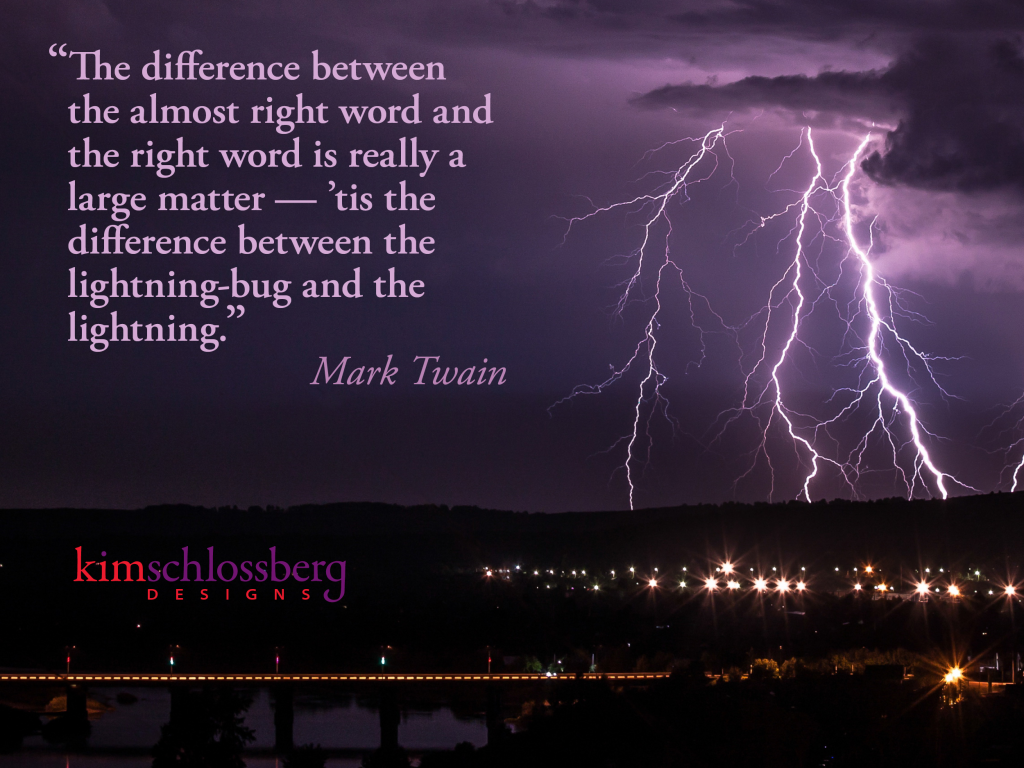Mark Twain famously said that “The difference between the almost right word and the right word is really a large matter — ’tis the difference between the lightning-bug and the lightning.”
One sure sign that we’re using the “almost right word” is when we feel the need to use helper words that either amplify or minimize the word they are modifying. Adverbs and adjectives such as very, really, extremely, almost, or nearly are indicators that the words following them are not quite right. Here are some examples of ways to use more precise words to strengthen your language:
Instead of:
really bright
very scared
almost never
dazzling, luminous
terrified, horrified
rarely, seldom
By letting go of the amplifier or minimizer word, writers have the opportunity to select a stronger word that more clearly and elegantly communicates their thoughts. The suggested words in the right column are not only stronger, they also bring in extra nuance and connotations that will make your writing more interesting.
Or, if all else fails – you can follow another bit of Mark Twain advice:
“Substitute ‘damn‘ every time you’re inclined to write ‘very;’ your editor will delete it and the writing will be just as it should be.”
- How 2020 can make 2021 better - December 28, 2020
- Welcome to the Kim Schlossberg Designs newsletter - December 18, 2020
- A Strong Brand is the Key to Resilience - April 10, 2020

